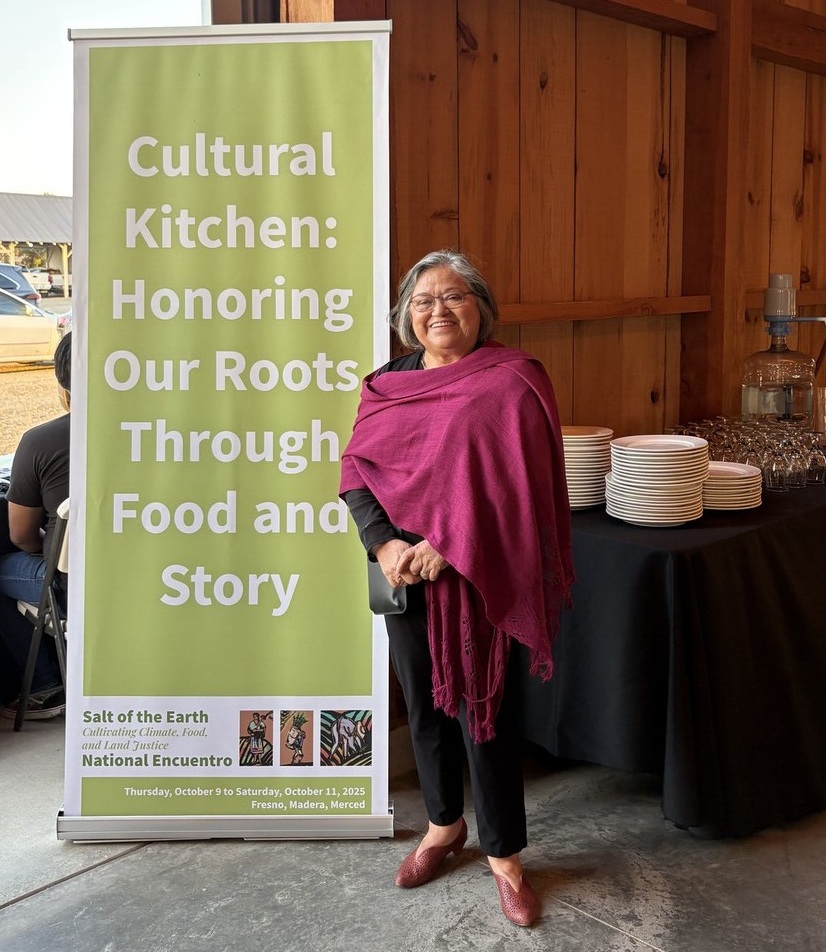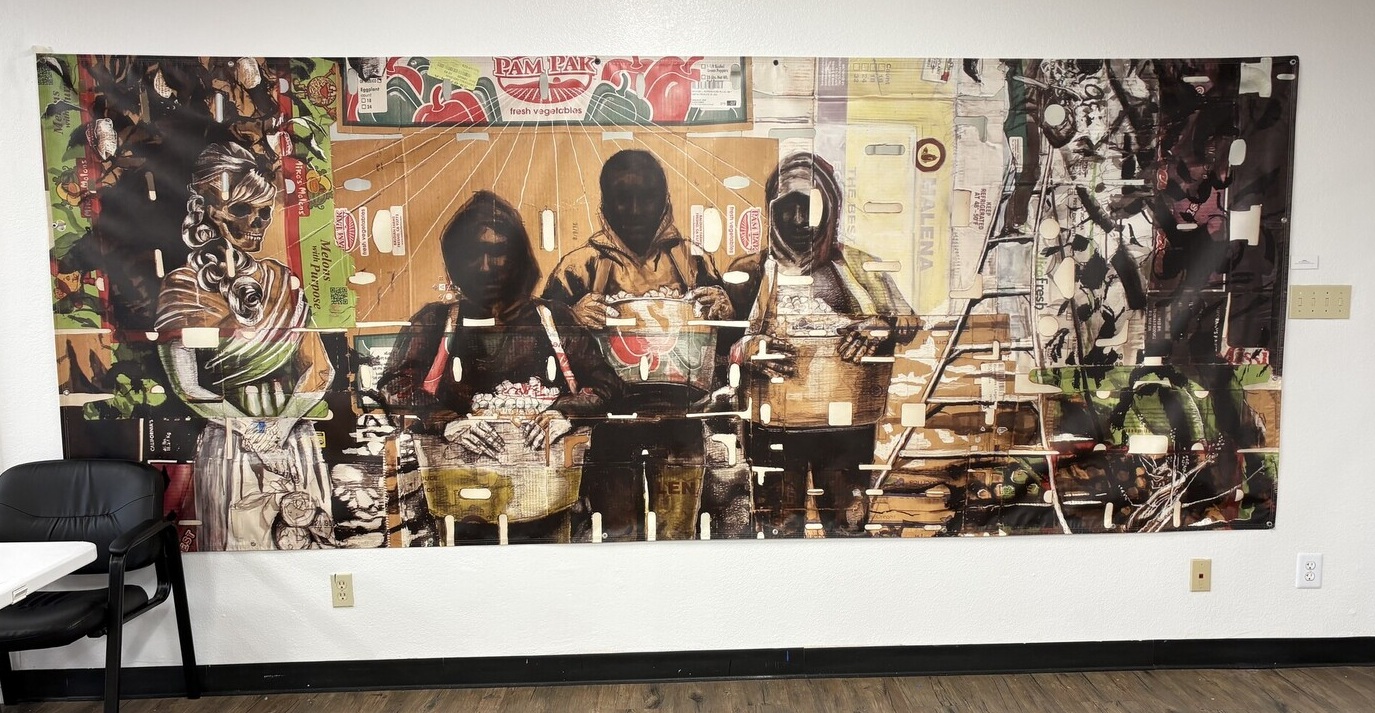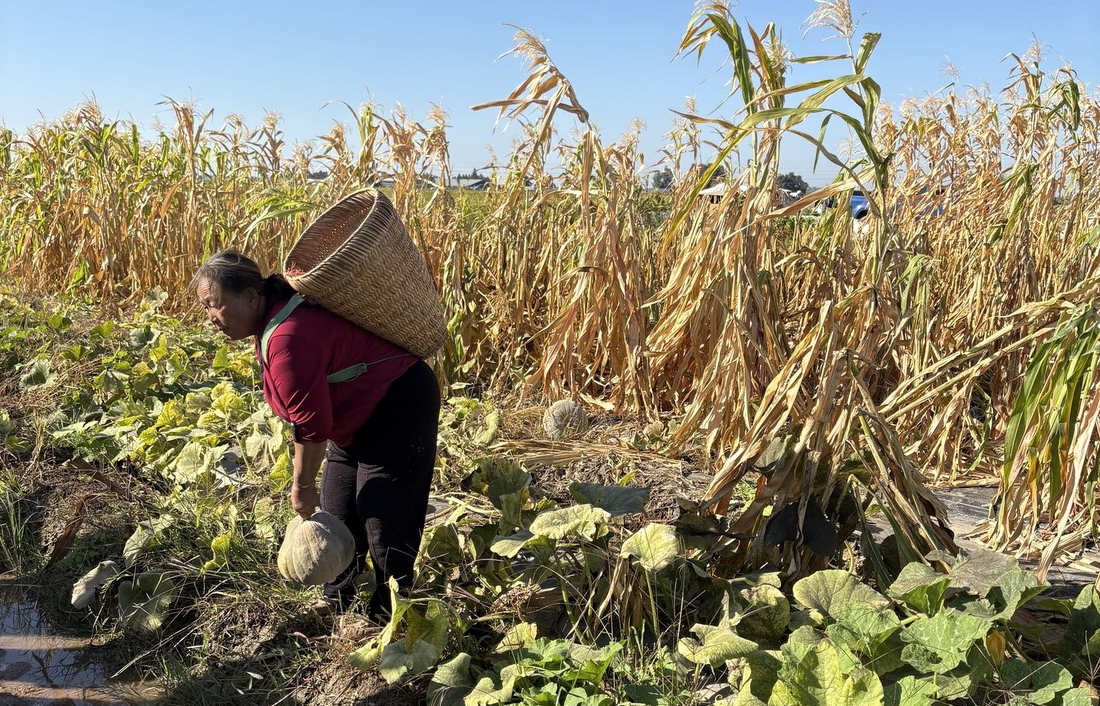
Myrna Martinez Nateras is the founding Program Director of the Pan Valley Institute. Claire Hannapel
California’s Central Valley has been called “America’s food basket” for good reason. With less than one percent of total US farmland, it produces over 250 crops and 25 percent of the nation’s food, 20 percent of its milk and around 40 percent of its fruit, nuts and vegetables.
It’s been the scene of major labor struggles of diverse farm workers facing injustices imposed by wealthy growers, a powerful industrial food system, and state repression. In the early 20th century, organizing efforts were led by the Industrial Workers of the World, which sought to organize all laborers regardless of skill, race, or sex into One Big Union, although it suffered major persecution in the wake of World War I.
Numerous strikes of farm laborers occurred in the 1930s as they faced conditions immortalized in John Steinbeck’s “Grapes of Wrath.” The United Farm Workers union remains active today after decades of epic struggles in the fields and policy arenas. In recent years, a contract labor system, harassment, long commutes to and from the fields, extreme heat, and shortening work seasons due to climate change have complicated the situation of many farm workers.
Today the Central Valley is a crossroads where several critical issues converge: a political climate of hostility to immigrants and refugees, environmental degradation, economic exploitation, food justice (or the lack thereof), and the inequities created by large-scale agribusiness.
In these times of intense anti-immigrant sentiment and resurgent racism, it is worth highlighting the long history and positive contributions of immigrants, refugees, Indigenous communities, and people of color to regional agricultural systems, sustainable local economies, and a vibrant food culture.
The Pan Valley Institute (PVI) was established in 1998 by the American Friends Service Committee (AFSC), which had a decades-long history in supporting farmworkers in the region. Now PVI is in the process of becoming an independent organization. Its goal from the start was bold: to serve as a sort of Highlander Center of the West. The Highlander, founded in Appalachian Tennessee 1932 by Myles Horton and Don West, was and remains a leader in supporting labor, civil rights, environmental, and social justice organizations.
PVI adapted this model to the rapidly changing demographic and economic changes in the Central Valley, creating spaces where immigrants, refugees, and Indigenous communities can learn from each other, develop a sense of belonging, build culturally thriving communities, and support alternatives to the corporate food economy. The work is guided by popular education, cultural exchange, music and art, participatory action research, and decolonial pedagogy principles.
In October 2025, PVI and allies convened their second Salt of the Earth Encuentro, a gathering held in Fresno, Merced, and Madera, with a theme of “Cultivating Climate, Food, and Land Justice.” Food has been a particularly powerful way to promote solidarity and cultural exchange across cultural lines.
According to PVI planners, “Through storytelling, food traditions, art, and sustainable agriculture, this Encuentro uplifts communities targeted by systemic oppression and reclaims their rightful place as cultural and economic leaders. It fosters cross-cultural solidarity among historically separated communities, disrupts social divisions, and offers a radically inclusive vision for justice rooted in equity, ecological responsibility and collective empowerment.”

Claire Hannapel
Over three days and three locations, around 120 workers, farmers, chefs, activists, artists, and organizers took part in the encuentro, which included:
- A multimedia exhibit titled: “Cultural Crossroads: Where Food Meets History,” which is part of a yearlong campaign to raise awareness of the area’s economic inequality and climate issues and to highlight indigenous farming techniques, multicultural food practices, immigrant entrepreneurship, and alternative food production methods that prioritize sustainability and community well-being over maximizing profits.
- Visits with Laotian and Hmong farmers, including one practicing hand-grown and harvested heritage strains of rice.
- A “cultural kitchen,” where participants experienced authentic dishes from Indigenous and immigrant chefs representing Mixteca, Michoacan, Hmong, Native American, Iraqi, Afghan, Afro-Mexican, and Zapoteca traditions, to the accompaniment of live music.
- A daylong session that included poetry, theater, an interactive mural, speakers, and platicas (dialogues) on issues such as climate justice, ancestral weaving and food traditions, and issues affecting farm workers.
This combination of art, culture, creativity, solidarity, resistance, and building sustainable alternatives is especially powerful today. The Salt of the Earth Encuentro helps to light the way in dark times.

Claire Hannapel